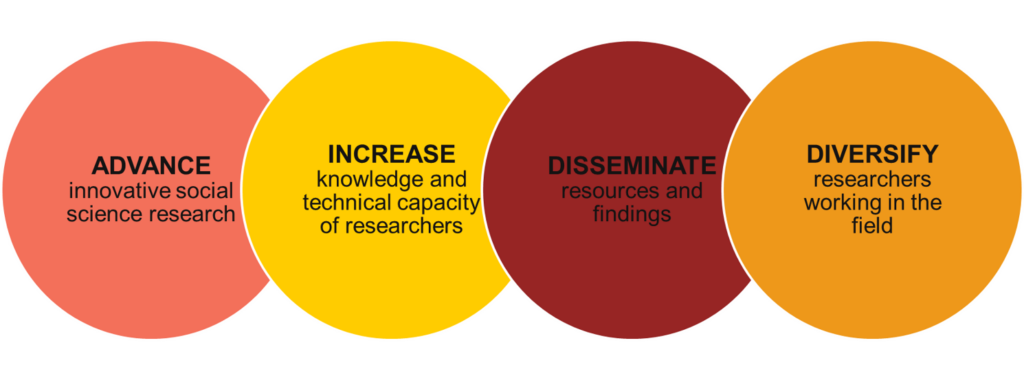The Center for Advancing Sociodemographic and Economic Study of Alzheimer’s Disease and Related Dementias (CeASES-ADRD) is an interdisciplinary center launched by the USC Schaeffer Center with experts from USC, Stanford, and the University of Texas, Austin. The Center was established in 2020 with a $4.1 million grant from the National Institute on Aging.
Alzheimer’s disease is on the rise, with the number of Americans afflicted by this ultimately fatal condition expected to reach 14 million by 2060. The cost of caring for patients with Alzheimer’s and related dementias (ADRD) is rising dramatically and is projected to reach $1.5 trillion by 2050.
CeASES-ADRD will advance innovative social science research on dementia, increase knowledge and technological capacity, and build a diverse, global network of social science researchers in the field. The Center supports research examining the health, economic and social costs of dementia in order to identify opportunities to reduce them in diverse populations, and national and international trends and projections of ADRD to inform policy and intervention development. Goals are accomplished through network meetings, workshops on data and methods, microsimulation and behavioral economics, pilot project support, and the annual Science of ADRD for Social Scientists Program.
Mission | To advance innovative social science ADRD research, broaden and diversify the set of researchers working in the field, and disseminate findings for impact.
Research Priorities
- Quantify health, social and economic costs of ADRD for individuals, families and generations.
- Assess how physician and individual behaviors impact dementia risk and outcomes.
- Analyze the role of health systems and payment models on care as well as health and economic outcomes.
- Expand our understanding of the variation in risk and outcomes across populations.
- Model the consequences of an aging society to better inform ADRD treatment and policy decisions.
CeASES-ADRD will create a global network of social scientists
CeASES-ADRD is developing and coordinating a network of leaders in the field, who will be brought together for conferences and seminars to exchange ideas and findings. In addition, an international team of researchers will use longitudinal datasets and dynamic microsimulations to forecast national and international trends related to Alzheimer’s.
CeASES-ADRD 2023-2024 pilot awardees and 2024-2025 application information
CeASES-ADRD announced five projects selected for the CeASES-ADRD 2023-2024 pilot grant awards. These five projects were selected from a number of competitive applications. Learn more about the 2024-2025 application process here.
Leadership
Julie Zissimopoulos, PhD
Director, Administrative Core, CeASES-ADRD
Director of Research Training and Co-Director of Aging and Cognition, USC Schaeffer Center
Associate Professor, USC Price School of Public Policy
Dana Goldman, PhD
Director, Dissemination Core, CeASES-ADRD
Director, USC Schaeffer Center
Distinguished Professor of Public Policy, Pharmacy & Economics, USC School of Pharmacy and the USC Price School of Public Policy
Mark Hayward, PhD
Director, Network Core, CeASES-ADRD
Director, Population Health Initiative, University of Texas at Austin
Centennial Commission Professor in the Liberal Arts, University of Texas at Austin
.

Jay Bhattacharya, PhD
Director, Pilot Core, CeASES-ADRD
Director, Stanford Center on the Demography and Economics of Health and Aging
Professor, Medicine, Stanford University Center for Primary Care and Outcomes Research
Affiliated Centers
Hopkins’ Economics of Alzheimer’s Disease and Services Center (HEADS)
Center to Accelerate Population Research in Alzheimer’s (CAPRA)
This project is supported by the National Institute on Aging under the National Institutes of Health, award number P30AG066589. The content is solely the responsibility of the authors and does not necessarily represent the official views of the National Institutes of Health.




You must be logged in to post a comment.